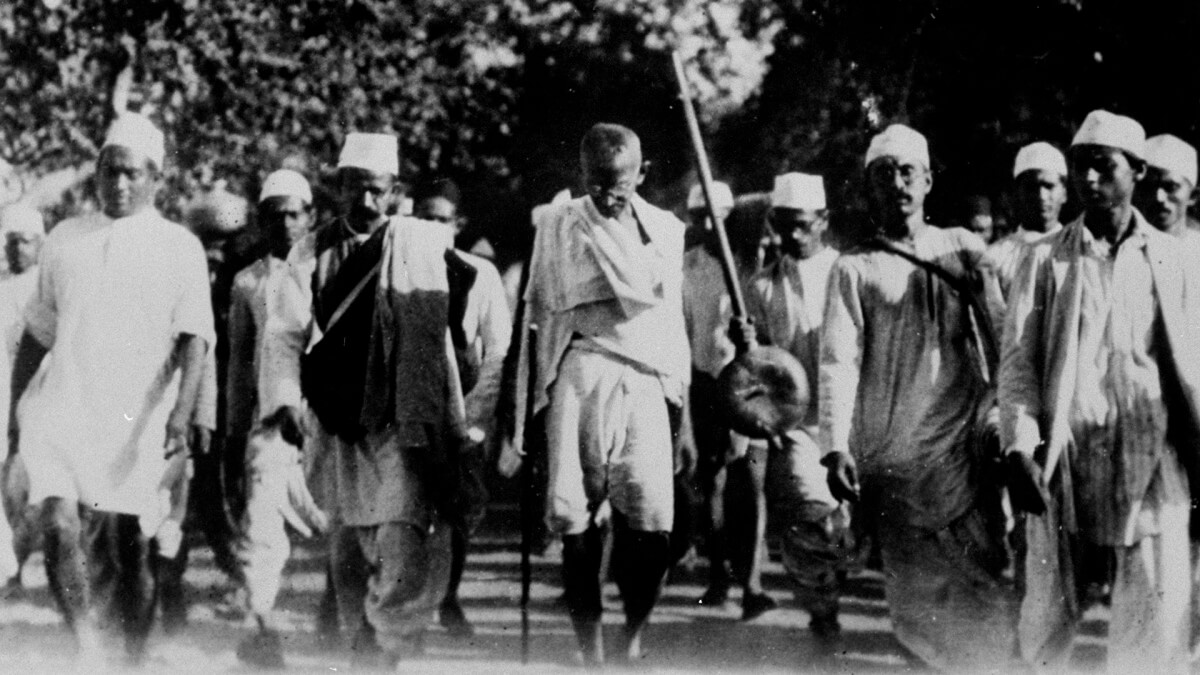Mahatma Gandhi
Satyagraha differs from Passive Resistance as the North Pole from the South. The latter has been conceived as a weapon of the weak and does not exclude the use of physical force or violence for the purpose of gaining one’s end, whereas the former has been conceived as a weapon of the strongest and excludes the use of violence in any shape or form.
The term satyagraha was coined by me in South Africa to express the force that the Indians there used for full eight years, and it was coined in order to distinguish it from the movement then going on in the United Kingdom and South Africa under the name of Passive Resistance.
On the political field, the struggle on behalf of the people mostly consists in opposing error in the shape of unjust laws. When you have failed to bring the error home to the law-giver by way of petitions and the like, the only remedy open to you, if you do not wish to submit to error, is to compel him by physical force to yield to you or by suffering in your own person by inviting the penalty for the breach of the law. Hence satyagraha largely appears to the public as Civil Disobedience or Civil Resistance. It is civil in the sense that it is not criminal.
The law-breaker breaks the law surreptitiously and tries to avoid the penalty; not so the civil resister. He ever obeys the laws of the state to which he belongs, not out of fear of the sanctions, but because he considers them to be good for the welfare of society. But there come occasions, generally rare, when he considers certain laws to be so unjust as to render obedience to them a dishonor.
He then openly and civilly breaks them and quietly suffers the penalty for their breach. And in order to register his protest against the action of the law-givers, it is open to him to withdraw his co-operation from the state by disobeying such other laws whose breach does not involve moral turpitude.
In my opinion, the beauty and efficacy of satyagraha are so great and the doctrine so simple that it can be preached even to children. It was preached by me to thousands of men, women and children commonly called indentured Indians with excellent results.
The spirit of non-violence necessarily leads to humility. Non-violence means reliance on God, the Rock of Ages. If we would seek His aid, we must approach Him with a humble and a contrite heart. Non-co-cooperationists may not trade upon their amazing success at the Congress. We must act, even as the mango tree which droops as it bears fruit. Its grandeur lies in its majestic lowliness.
Non-co-operation is not a movement of brag, bluster, or bluff. It is a test of our sincerity. It requires solid and silent self-sacrifice. It challenges our honesty and our capacity for national work. It is a movement that aims at translating ideas into action. And the more we do, the more we find that much more must be done than we had expected. And this thought of our imperfection must make us humble.
A non-co-operation strives to compel attention and to set an example not by his violence, but by his unobtrusive humility. He allows his solid action to speak for his creed. His strength lies in his reliance upon the correctness of his position.
Excerpted from ‘Selected Writings of Mahatma Gandhi’. The 152nd birth anniversary of Mahatma Gandhi is being observed on October 2






